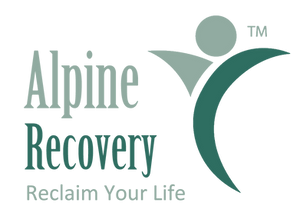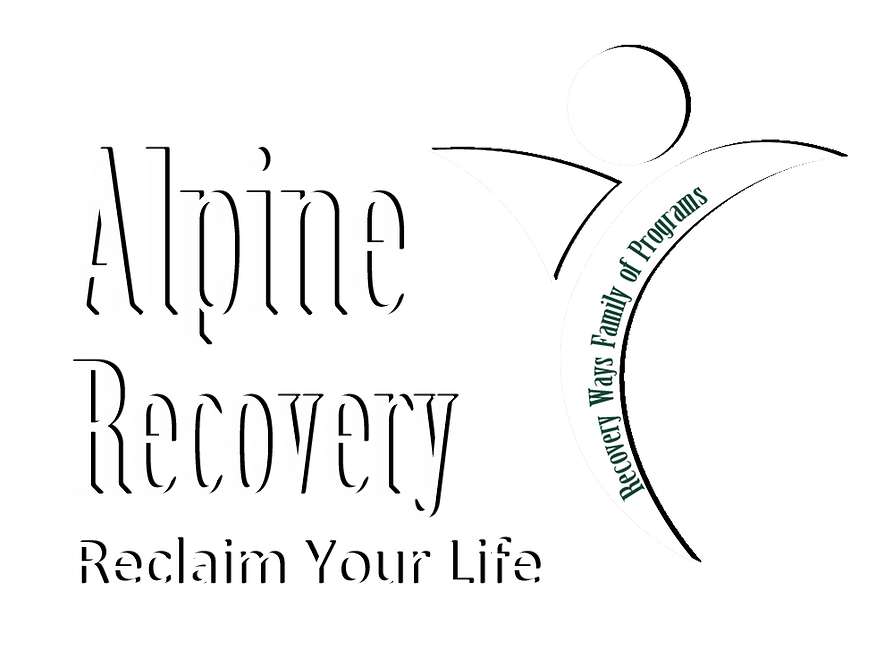Partial Hospitalization Program Everett
Exploring Diverse Perspectives on Partial Hospitalization Programs in Everett
In Everett, the concept of the Partial Hospitalization Program (PHP) is a vital thread in the tapestry of mental health and addiction recovery. As a clinician with over two decades of experience at Alpine Recovery, I’ve witnessed firsthand the transformative power of these programs. They serve as a bridge, offering a structured pathway for individuals transitioning from inpatient care to independent living.
PHPs provide intensive therapeutic support while allowing patients the flexibility to return home at the end of the day. This model fosters a balance between comprehensive care and personal responsibility. In Everett, the Partial Hospitalization Program emphasizes the importance of community integration and the cultivation of daily living skills, contributing to sustainable recovery.
Critics, however, sometimes question the efficacy of PHPs, suggesting that the absence of 24-hour supervision might compromise patient safety. Proponents argue that these programs nurture a sense of autonomy that is crucial for long-term recovery. The debate underscores one of the core strengths of PHPs: they are adaptable, with the capacity to be tailored to meet the unique needs of each participant.
What Qualifies as a Partial Hospitalization Program Everett Emergency?
Partial Hospitalization Program Everett emergencies typically occur when a participant exhibits behaviors or symptoms that suggest an immediate risk to themselves or others. This could include sudden mood swings, increased substance use, or the emergence of suicidal thoughts.
Responding to such emergencies involves a multi-step approach:
- Assessment: Clinicians conduct rapid evaluations to determine the level of risk.
- Intervention: Immediate therapeutic interventions aim to stabilize the individual.
- Plan Adjustment: Treatment plans are reviewed and adjusted to address new challenges.
- Family Involvement: Engaging family support to monitor and assist the participant.
- Follow-Up: Ongoing monitoring and follow-up appointments to ensure continued stability.
How Individualized Therapy Shapes Partial Hospitalization Programs in Everett
One of the defining features of the Partial Hospitalization Program in Everett is the emphasis on individualized therapy. This personalized approach is not merely a feature; it’s the backbone of effective treatment. Each patient arrives with a unique set of circumstances, and our job is to meet them where they are.
At Alpine Recovery, licensed therapists work closely with clients to design personalized treatment plans. This process involves a detailed assessment, considering factors such as the severity of addiction, mental health status, and personal preferences. Subsequently, clients participate in a mix of individual and group therapy sessions, where they gain insights into their behaviors and learn coping strategies.
Beyond traditional therapy, PHPs in Everett integrate alternative modalities to enhance treatment effectiveness. Mindfulness practices, nutritional counseling, and exercise programs are woven into daily schedules, addressing the whole person. This holistic approach not only aids in recovery but also empowers individuals to reclaim their lives.
In my experience, this tailored model of care leads to higher engagement and better outcomes. When patients feel understood and supported, they are more likely to commit to their recovery journey. These individualized therapeutic strategies are pivotal in helping patients rebuild their lives and achieve long-lasting sobriety.
Unveiling the Benefits of Partial Hospitalization Program Everett
For many individuals grappling with substance abuse or mental health challenges, the Partial Hospitalization Program Everett offers a viable and effective path to recovery. I have seen countless lives transformed by this approach, where structured care meets flexibility.
- Access to Comprehensive Care: Participants receive extensive therapeutic support, crucial for deep-seated behavioral change.
- Community Support: Group therapy sessions foster a sense of belonging, reducing feelings of isolation often associated with addiction.
- Flexible Transition: PHPs serve as a transitional step between residential treatment and outpatient care, easing individuals back into everyday life.
- Cost-Effectiveness: Partial hospitalization is generally more affordable than full-time residential care, making it accessible to more people.
- Personal Autonomy: Allowing patients to return home each night helps them practice independence while still receiving structured support.
Addressing Common Concerns About Partial Hospitalization Programs
Despite their numerous benefits, some concerns about Partial Hospitalization Programs in Everett warrant discussion. One frequent question revolves around the adequacy of safety measures in a non-residential setting. At Alpine Recovery, we prioritize safety through rigorous risk assessments and comprehensive crisis management protocols.
Another concern is whether PHPs can provide the same level of therapy as inpatient facilities. In my professional experience, the quality of therapy in PHPs matches that of inpatient settings, thanks to highly qualified staff and evidence-based practices. Additionally, PHPs offer the advantage of real-world application of therapeutic skills.
Family involvement is another common worry. Some families fear that a loved one’s return home each day might pose challenges. We encourage family therapy sessions to address these concerns effectively, fostering a supportive home environment conducive to recovery.
Lastly, patients often wonder about the duration of treatment. While the length of a PHP can vary, typically lasting several weeks, the decision is tailored based on individual progress and clinical judgment. This flexibility ensures that each participant receives the appropriate level of care for their unique situation.
How much does a partial hospitalization program cost?
The cost of a partial hospitalization program can vary significantly based on several factors, such as the location, duration of treatment, and the range of services offered. Typically, these programs are more affordable than full-time residential care because they do not require overnight stays. At Alpine Recovery, we focus on providing accessible care without compromising quality, often working with insurance providers to help alleviate financial concerns. If cost is a concern, I recommend reaching out to us directly, as we can assist in exploring your options and finding a solution that fits your financial situation.
How to get into a partial hospitalization program?
Entering a partial hospitalization program usually begins with an assessment to determine if it’s the best fit for your recovery needs. At Alpine Recovery, we prioritize understanding each individual’s unique situation through a comprehensive evaluation. Our team of experienced professionals is here to guide you through the admissions process, ensuring the program aligns with your personal and clinical needs. Should you feel unsure if a PHP suits you, consider contacting our intake specialists, who will be happy to discuss your options and help you take the next steps toward recovery.
Is a partial hospitalization program worth it?
Absolutely, a partial hospitalization program can be immensely beneficial, especially if you’re transitioning from inpatient care or require more support than traditional outpatient therapy can provide. At Alpine Recovery, our PHPs offer intensive therapeutic interventions combined with the flexibility to manage daily life responsibilities, promoting autonomy and real-world application of skills. This setup has empowered many individuals to embrace recovery while maintaining personal responsibilities, striking a balance that is often key to long-term success. Have you ever thought about how integrating structured treatment into your daily routine could positively impact your recovery journey?
How long are most partial hospitalization programs?
The duration of a partial hospitalization program varies based on individual needs and progress. On average, these programs might last from several weeks to a few months. At Alpine Recovery, we tailor the treatment length to fit each participant’s unique journey, ensuring they receive the appropriate care for their recovery. Our focus on individualized care means that you’ll progress at your own pace, supported by a team dedicated to helping you achieve your goals. If you’re curious about how long a PHP might be for you, feel free to reach out for a personalized consultation.
What safety measures are in place in partial hospitalization programs?
Safety is a top priority in partial hospitalization programs, including those at Alpine Recovery. Although participants return home daily, we implement rigorous risk assessments and crisis management protocols to ensure a safe environment. Our clinicians are trained to quickly address any emergencies that might arise, providing immediate intervention and ongoing support. By involving family in the therapeutic process, we enhance safety and support upon a patient’s return home. How might increased family involvement support your or your loved one’s recovery process?
Is therapy in PHPs as effective as in inpatient settings?
Therapy provided in partial hospitalization programs can be just as effective as inpatient settings, especially when it’s tailored to an individual’s needs. At Alpine Recovery, we employ evidence-based practices led by highly qualified therapists who work closely with clients to develop personalized treatment plans. Our holistic approach, integrating mindfulness and wellness practices, complements traditional therapy and supports comprehensive healing. Have you considered how a more personalized approach could enhance the effectiveness of your recovery journey?
How can family involvement be integrated into partial hospitalization programs?
Family involvement is crucial in partial hospitalization programs at Alpine Recovery. We encourage family therapy sessions to address and alleviate any concerns families might have as their loved ones transition through recovery. This approach not only strengthens support systems but also fosters a favorable home environment that’s conducive to ongoing recovery. Family members often express relief and empowerment when they actively participate in the healing process. If your family is part of your recovery journey, how do you think their involvement might impact your progress?
Resources
- Substance Abuse and Mental Health Services Administration (SAMHSA) – SAMHSA is a government organization dedicated to improving the behavioral health of the nation and reducing the impact of substance abuse and mental illness.
- National Alliance on Mental Illness (NAMI) – NAMI is a grassroots mental health organization providing support, education, and advocacy for individuals and families affected by mental illness.
- American Psychiatric Association (APA) – APA is a leading organization of psychiatrists, working to ensure humane care and effective treatment for all persons with mental illness.
- Centers for Disease Control and Prevention (CDC) – Mental Health – The CDC provides information on mental health, including data, resources, and strategies to promote mental wellness.
- National Institutes of Health (NIH) – NIH is the primary agency for conducting and supporting medical research, including research on mental health disorders and treatments.


















